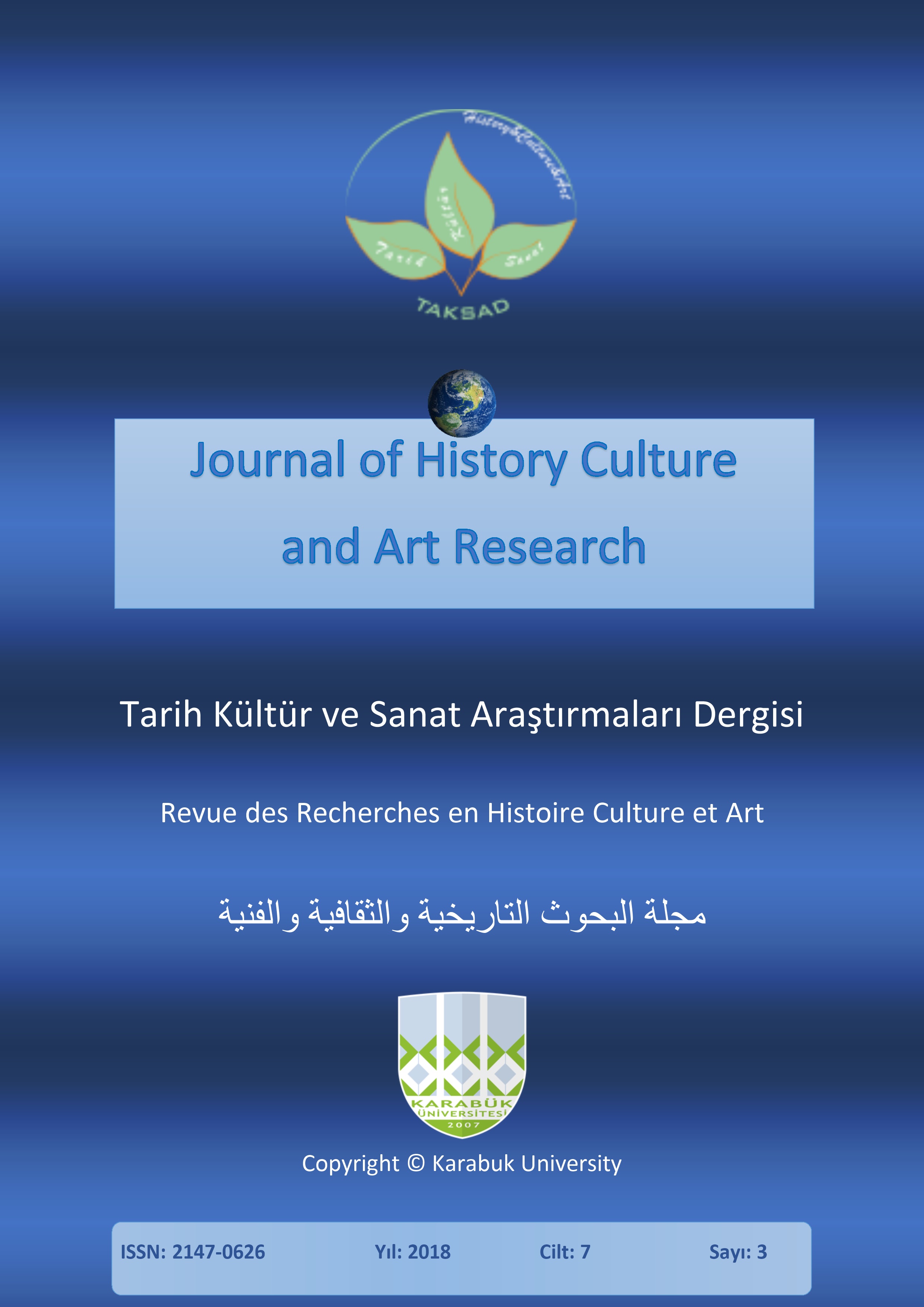The Special Relationship: The US, Great Britain and Egypt over the Suez Canal
DOI:
https://doi.org/10.7596/taksad.v7i3.1614Keywords:
UK and USA relationship, Special relationship, UK, USA, Suez Canal, Egypt, Israel, France, the Soviet Union.Abstract
The United Kingdom had ruled nearly the whole world. It is said that the sun never sets on the British Empire. The emergence of World War I and II weaken the power of Britain as a dominate colony of the world. However, by the end of WW-II, the US emerged as the newly famous, powerful country in the world. During the WW-II, the UK and the USA developed close cooperation. The relationship of both countries developed to such an extent that the Prime Minster W.D. Churchill called it the Special Relationship between UK-USA. The special relationship between both nations continued after the end of WW-II. It was believed that the bond of relationship is so strong that it cannot be rifted. It was right considering the close cooperation between both countries during the WW-II and aftermaths. However, the incident of the Suez Canal in 1956, completely changed the scenario. The tension between both states appeared over the Suez Crisis. This historical analysis is made to understand to what extent the special relationship was strong? Moreover, what went wrong during the Suez Crisis that shattered the special relationship between UK-USA. Was the Suez debacle of 1956, served as the litmus test paper in examining the special relationship?
References
Alterman, B. J. (2002). Egypt and American Foreign Assistant, 1952-1956. New York: Palgrave Macmillan.
Bleck, J. P. (2006). ‘The Lessons of Abandon and Suez for British Foreign Policy Makers in the 1960s’. The Historical Journal, Vol. 49 (2), 525-547.
Boyce, G. D. (1999). Decolonisation and the British Empire, 1775-1997. London: Macmillan Press Ltd.
Boyle, G. P. (2005). ‘The Hungarian Revolution and the Suez Crisis’, History, Vol. 90, 550-565.
Boyle, G. P. (2005). Eisenhower: Profile in Power. New York: Pearson-Longman.
Chester, J. P. Jr. & Richardson, E. (1991). The Presidency of Dwight D. Eisenhower. United States of America: The University Press of Kansas.
Cross, C. (1969). The Fall of the British Empire: 1918-1968. New York: Coward McCann Inc.
Dawisha, I. A. (2003). Arab Nationalism in the Twentieth Century: from triumph to despair. New Jersey: Princeton University Press.
Dekmejian, R. H. (1971). Egypt Under Nasser. New York: State University of New York.
Dimbley, D. & Reynolds, D. (1988). An Ocean Apart: the relationship between Britain and America in the twentieth century. London: Hodder & Stoughton.
Dumbrell, J. (2001). A Special Relationship: Anglo-American Relations from the Cold War to Iraq. London: Palgrave Macmillan.
Ginat, R. (1993). The Soviet Union and Egypt: 1945-1955. London: Frank Cass & Co. Ltd.
Hahn, L. P. (1991). United States, Great Britain and Egypt, 1945-1956. United States: The University of North Carolina.
Hahn, P. L. (2006). ‘Securing the Middle East: The Eisenhower Doctrine of 1957’. Presidential Studies Quarterly, Vol. 36 (1), 38-47.
Heinlein, F. (2002). British Government Policy and Decolonisation 1945-1963: scrutinising the official mind. London: Frank Cass Ltd.
Holland, F. M. (1996). America and Egypt: From Roosevelt to Eisenhower: United States: Praeger.
Jankowski, P. J. (2002). Nasser’s Egypt, Arab Nationalism and the United Arab Republic. London: Lynne Rienner Inc.
Klug, A. & Smith, G. W. (1999). ‘Suez and Sterling, 1956’. Explorations in Economic History, Vol. 36(3), 181-203.
Louis, R. W. (2006). End of British Imperialism: The Scramble for Empire, Suez and Decolonisation. London: I. B. Taurus.
Louis, W. & Bull, H. (eds.), (1986). The Special Relationship: Anglo-American Relations Since 1945. Oxford: Clarendon.
Lucas, W. S. (1991). Divided We Stand Britain, the US and the Suez Crisis. London: Hoodder & Stoughton.
Martel, G. (2000). ‘Decolonisation after Suez: Retreat or Rationalisation’. Australian Journal of Politics and History, Vol. 46 (3), 403-417.
Porter, B. (2004). The Lion’s Share: A short history of imperialism, 1850-2004. Glasgow: Pearson Education Ltd.
Searle, C. (2001). ‘And His Name is Nasser: cricket and the Suez Crisis’. Race and Class, Vol. 43 (1), 59-69.
Springhall, J. (2001). Decolonisation Since 1945: The Collapse of European Overseas Empires. New York: Palgrave.
Thornhill, T. M. (2004). ‘Britain, The United States and the Rise of an Egyptian Leader: The Politics and diplomacy of Nasser’s Consolidation of Power, 1952-1954’. English Historical Review, Vol. CXIX (483), 892-921.
Toye, R. (2008). ‘The Churchill Syndrome: Reputational Entrepreneurship and the Rhetoric of Foreign Policy since 1945’. British Journal of Politics and International Relations, Vol. 10 (3), 364-378.
Wallaca, W. & Phillips, C. (2009). ‘Reassessing the special relationship’. International Affairs, Vol. 85(2), 263-284.
Downloads
Published
How to Cite
Issue
Section
License
All papers licensed under Creative Commons 4.0 CC-BY.- Share — copy and redistribute the material in any medium or format
- Adapt — remix, transform, and build upon the material for any purpose, even commercially.
Under the following terms:
Attribution — You must give appropriate credit, provide a link to the license, and indicate if changes were made. You may do so in any reasonable manner, but not in any way that suggests the licensor endorses you or your use.
- No additional restrictions — You may not apply legal terms or technological measures that legally restrict others from doing anything the license permits.







